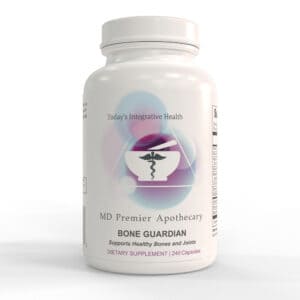Your body is a complex machine. In fact, it’s so complex; we may never fully understand how it operates as efficiently as it does. This is especially true when it comes to your body’s ability to heal itself after an injury or illness. Homeopathy is a medical system that taps into the body’s ability to heal itself. Today, our team at Today’s Integrative Health will go over what homeopathy is and how it can help you.
How Does Homeopathy Work?
Homeopathy originated in Germany, and while it’s not overly popular in the United States, it is a common treatment option in European countries. The idea behind the treatment is that “like cures like.” Essentially, something that brings on symptoms in a healthy person can treat an illness with similar symptoms.
One example of a homeopathic remedy is arnica. This remedy is actually made from poison ivy, white arsenic, and crushed whole bees. Another example is a homeopathic doctor using red onion to treat allergies. Since red onions make your eyes water, the idea is, they can help treat allergies since allergies also make your eyes water.
Benefit of Homeopathy
Homeopathy is a popular functional medicine treatment option because it’s tailored to the patient. While traditional treatment options tend to attack the side effects, homeopathy attempts to attack the root cause. That’s why it’s common to see two people with the same condition receive different types of treatments.
A functional medicine practitioner will use a specialized diagnostic system designed for homeopathic treatment. They look for patterns of signs and symptoms to ensure you get the best treatment options for your ailments. By attacking the root cause, homeopathy aims for long-term results.
What is Homeopathy Used For?
It’s important to note that research into homeopathic treatment options is still in its infancy. Therefore, it’s hard to say that homeopathy can treat certain diseases or ailments definitively. However, it’s used for a variety of health issues, including:
- Allergies
- Migraines
- Depression
- Chronic fatigue syndrome
- Rheumatoid arthritis
- Irritable bowel syndrome
- Premenstrual syndrome
It’s also used for minor issues. Certain ingredients used in remedies can spark an allergic reaction or have an adverse reaction to certain medications. Before receiving homeopathic treatment, speak with your doctor.
Three Key Principles
Homeopathy is built around three main principles:
- The law of similars – Remember “like cures like” from earlier in the article? The idea is that remedies that cause side-effects similar to the side-effects caused by ailments can help
- The principle of the single remedy – With this principle, the idea is that a single remedy should cover an illness’s physical, emotional, and mental symptoms. This compared to traditional methods that require several different treatment options for one illness
- The principle of the minimum dose – Homeopathy treatment options only use a small amount of doses early on. An infinitesimal amount follows this over time
As you can see, the principles of homeopathy vary greatly from strategies used to implement traditional treatment methods.
Science Backing Homeopathy
So we know what homeopathy is and how it works, but does it work? What does the research say? Studies into the treatment option have yielded mixed results, and even experts are split on its effectiveness. Unfortunately, since there is no widespread regulation of homeopathy, research into homeopathic treatment is far and few in between.
However, some studies show promise. For example, a 2016 study found that homeopathy may have specific treatment effects. A 2018 study found that homeopathic treatment options may effectively prevent or treat acute respiratory tract infections in children. However, some researchers believe these claims are unfounded.
Homeopathy Risks
There are some risks involved with homeopathy. As we mentioned earlier, some of the ingredients used in homeopathic remedies can cause allergic reactions. Certain medications you are taking can also have adverse reactions when mixed with certain elements. It’s best to check with a doctor to know the components you can and can’t consume.
While homeopathy can help treat some of the ailments we mentioned above, it’s not used to treat chronic illnesses. Functional medicine treatments have come a long way; however, homeopathy still has a long way to be considered a treatment option for chronic disease.
The Future of Homeopathy
While researchers disagree regarding the effectiveness of homeopathy and other functional medicine treatment options, there is one thing they agree on: the personal care aspect of homeopathy has great potential and should be commonplace in medical treatment. Unfortunately, this isn’t the case.
Traditional treatment options are often too focused on the side effects rather than the root cause. To get to the root cause, you need to understand the patient. Homeopathy gets to the root cause by focusing on the patient. Working with the patient at a personal level can have a physiological effect. Chemical changes such as the release of endorphins (which work as a natural painkiller) often come with personal care.
We Can Help
If you need homeopathic treatment options, our team here at Today’s Integrative Health is here to help. We offer a wide range of functional medicine treatment options throughout Rockville, Maryland, including homeopathy. Give us a call today to find out what we can do for you!











